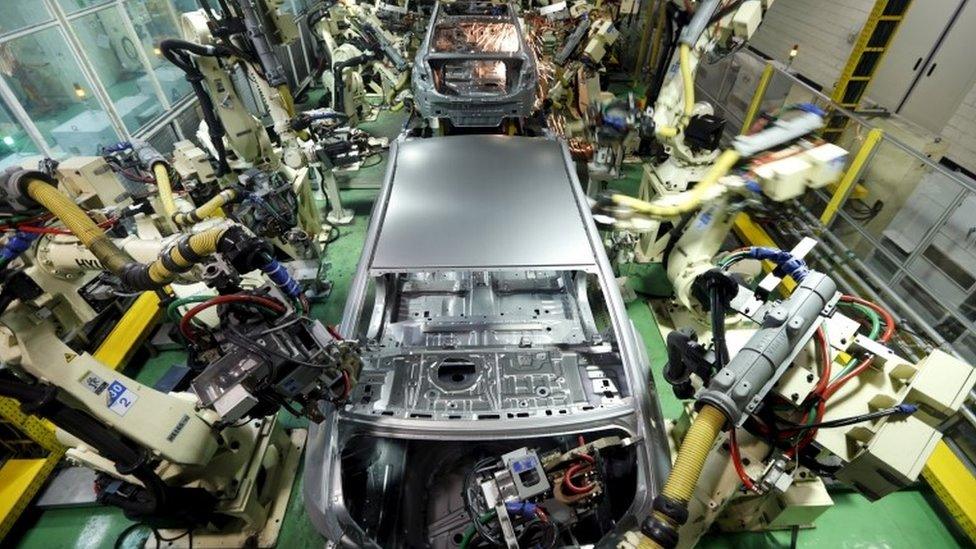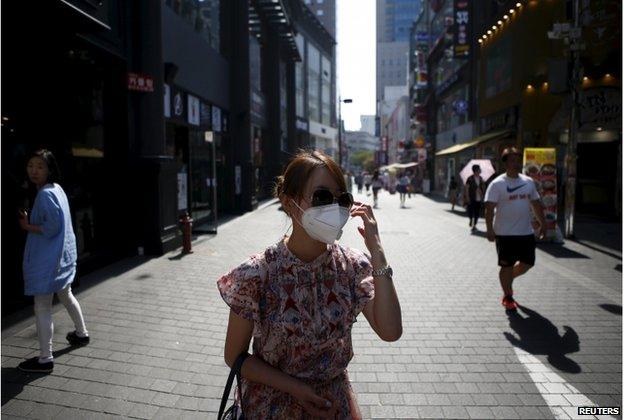S Korea to inject $10bn into economy after Mers outbreak
- Published

South Korea's export-led economy has been hit by slowing global demand for its goods
South Korea's government has proposed pumping billions of dollars into its economy as it struggles with falling exports and an outbreak of Middle East Respiratory Syndrome (Mers).
A fresh stimulus package put forth on Friday, worth 11.8tn Korean won ($10.5bn £6.7bn), is part of a larger economic stimulus plan worth 22tn won.
South Korea is targeting a growth rate of 3.1% for the year.
Analysts say even with additional stimulus it may not achieve its target.
South Korea's export-led economy has been hit by slowing global demand for its goods, together with sluggish consumer demand at home.
The proposed injection of funds is an attempt to counter the impact of a flagging economy with government spending.
"The government proposed a supplementary budget ... to deal with revenue shortages and 5.6 trillion won to help overcome the Mers outbreak, improve water resources management, support the working class and stimulate local economies," the government said in a statement. , external

On Friday South Korea reported a new case of Mers bringing the total number of infections to 184

Analysis: Stephen Evans, BBC South Korea correspondent
"Compare and contrast" might be the call from Europe.
As the governments in London and Berlin stick tightly to "austerity" and reining in public spending as economies slow down, South Korea goes in the opposite direction and increases government borrowing to spend and pump the economy up.
South Korean growth this year is forecast to be just over 3%. For many developed economies, that would be satisfactory but for South Korea it is far slower than they have come to expect.
This deceleration is caused primarily by the slowing of the Chinese economy but the outbreak of Mers raises a fear for the future. Accordingly, some of the extra spending is targeted at hospitals and clinics which failed to cope when the illness first appeared.
Tourism, as an industry hit hard by the outbreak, will also get some money. Farmers will benefit because of the ongoing drought.
But the detail does not seem as significant as the big picture: South Korea is rejecting the economics of Europe. Who's right?

A total of 184 people have now contracted the deadly Mers virus in South Korea and the government reported a new case on Friday. However, there have been no fatalities reported over the past three days.
Thirty-three people have died since it was first detected in May, making it the largest outbreak outside the Middle East.
Mers has killed 400 people in Saudi Arabia since 2012.